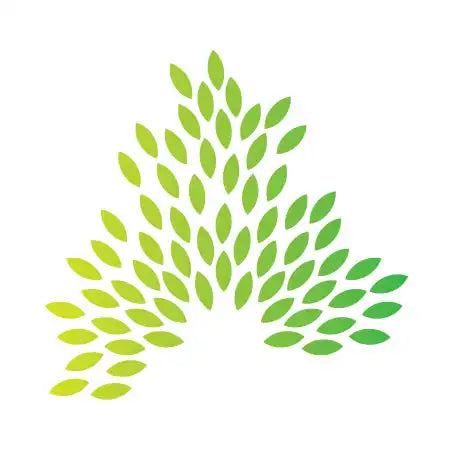Hirsutism is a condition that affects many women, causing excessive hair growth in areas where men typically grow hair. When linked with Polycystic Ovary Syndrome (PCOS), the condition can become more complex. This article aims to guide you through natural treatments for hirsutism when it is associated with PCOS.
Hirsutism: A Closer Look
Definition
Hirsutism refers to the excessive hair growth in women in areas where males typically grow hair, such as the face, chest, and back.
Symptoms
The symptoms include but are not limited to, thicker hair growth on the face, chest, and back, deepening of the voice, and acne.
Causes
High levels of androgens or male hormones are often the culprits behind hirsutism. It can also be hereditary.
Polycystic Ovary Syndrome (PCOS)
Definition
PCOS is a hormonal disorder that affects women of reproductive age, often characterized by high levels of androgens, irregular periods, and cysts in the ovaries.
Relationship with Hirsutism
PCOS can significantly exacerbate the symptoms of hirsutism due to the hormonal imbalances it causes.
Natural Treatments for Hirsutism in PCOS
Dietary Changes
Switching to a low-glycemic diet can help manage insulin levels and, by extension, control androgens. Consuming anti-inflammatory foods like berries and leafy greens can also be beneficial.
Natural Hair Inhibitors as a Treatment for Hirsutism
One promising approach to managing hirsutism naturally is the use of natural hair inhibitors. These are plant-based formulations designed to slow down the growth of unwanted hair. Ingredients like turmeric and soy have natural compounds that are believed to interfere with hair follicle activity. When used consistently, natural hair inhibitors can make hair finer and less visible, thus reducing the frequency of shaving, waxing, or other hair removal methods. However, it's important to note that the effectiveness of natural inhibitors can vary among individuals. Consulting a healthcare provider for a comprehensive treatment plan is advisable.
Herbal Remedies
Herbs like saw palmetto and spearmint have been shown to reduce hirsutism symptoms when consumed regularly.
Lifestyle Adjustments
Regular exercise can help regulate hormonal levels and improve the symptoms of both PCOS and hirsutism.
Anti-Androgen Supplements
Natural Sources
Certain natural substances like green tea and flaxseeds act as anti-androgens, reducing the level of male hormones.
How They Work
Anti-androgen supplements work by inhibiting the production of androgens, thus reducing symptoms of hirsutism and PCOS.
Effective Herbal Remedies
Saw Palmetto
Studies have shown that saw palmetto effectively reduces androgen levels, thereby treating hirsutism.
Spearmint Tea
Drinking spearmint tea regularly has been shown to reduce hirsutism symptoms. It acts as a natural anti-androgen.
Dietary Approaches
Foods to Include
Opt for foods rich in omega-3 fatty acids, and complex carbs like whole grains.
Foods to Avoid
Steer clear of processed foods and sugary items as they can aggravate symptoms.
Importance of Exercise
Types of Exercise Effective for Hirsutism and PCOS
Engaging in regular aerobic exercise can aid in managing hirsutism symptoms. Yoga and strength training are also beneficial.
Skin Care Regimen
Natural Products to Use
Opt for skin care products made with natural ingredients such as tea tree oil, which helps in reducing skin inflammation and acne.
Alternative Treatments
Acupuncture
Though not scientifically proven, some women have reported relief from hirsutism symptoms through acupuncture.
Homeopathy
Homeopathic remedies like sepia and pulsatilla have been used traditionally, but consult your healthcare provider before starting any treatment.
When to See a Doctor
Signs that Require Medical Attention
If symptoms worsen despite trying natural remedies, consult a healthcare provider for a comprehensive diagnosis and treatment plan.
Myths and Misconceptions
Bust the myths around PCOS and hirsutism, such as the misconception that it affects fertility adversely, which is not always true.
Conclusion
Managing hirsutism in PCOS naturally involves a holistic approach that combines dietary changes, herbal remedies, and lifestyle adjustments. Consult your healthcare provider to tailor a treatment plan best suited for you.
FAQs
How can diet affect hirsutism?
Diet plays a significant role in hormone regulation. Consuming foods rich in omega-3 fatty acids and complex carbs can help manage hormone levels, thereby reducing symptoms of hirsutism.
Is hirsutism curable?
Hirsutism is often manageable but not necessarily curable. Treatment plans focus on reducing symptoms and improving quality of life.
Does exercise help in reducing symptoms?
Yes, regular aerobic exercise can help regulate hormones and decrease insulin resistance, which are key factors in managing hirsutism symptoms.
What herbs are effective for treatment?
Herbs like saw palmetto and spearmint have been shown to reduce androgen levels, thereby alleviating symptoms of hirsutism.
What are the side effects of natural treatments?
Natural treatments are generally considered safe but can interact with medications or other health conditions. Always consult your healthcare provider before starting any natural remedy.
How does PCOS contribute to hirsutism?
Polycystic Ovary Syndrome (PCOS) often results in elevated androgen levels, a major contributor to hirsutism. Thus, managing PCOS can help alleviate hirsutism symptoms.
Are natural treatments effective for everyone?
The efficacy of natural treatments can vary from person to person. It's crucial to consult a healthcare provider to tailor a treatment plan suited to your needs.
Can hirsutism come back after successful treatment?
Yes, hirsutism can recur, especially if underlying conditions like PCOS are not managed effectively. Ongoing treatment and lifestyle changes are often recommended for long-term management.



